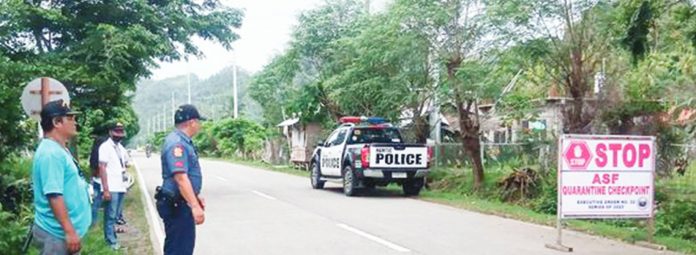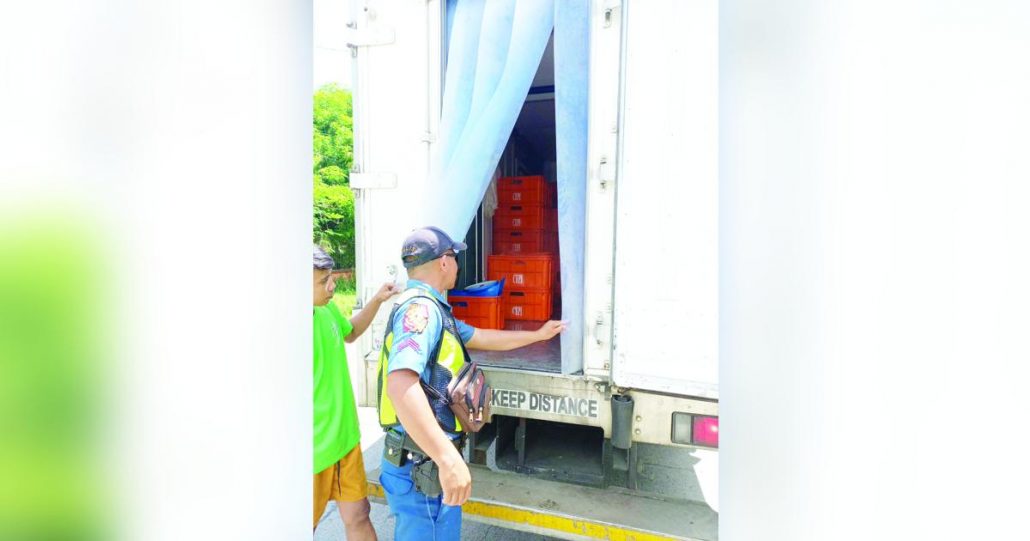

ILOILO City – The province of Antique is no longer free from the African Swine Fever (ASF).
Four blood samples collected from Hamtic town were positive for the hog disease based on the results of the convective polymerase chain reaction (CPCR) tests for ASF conducted by the Department of Agriculture (DA) Region 6’s Regional Animal Diseases and Diagnostic Laboratory (RADDL).
The test results mean all six provinces and two highly-urbanized cities in Western Visayas now have cases of ASF.
According to DA-6 officer-in-charge regional executive director Jose Albert Barrogo, they also sent blood samples to the Bureau of Animal Industry (BAI) – RADDL for confirmatory test and they expect similar results.
“Our purpose (for releasing the initial result) is at least may advance information na bala ang LGU (local government unit) kay galakat ang inadlaw. Kon hulaton ang sa BAI, pilahan pa ka adlaw antis mag-abot ang result. We are dealing with a virus, we have to contain it immediately,” said Barrogo.
In his letter to Antique’s Gov. Rhodora Cadiao and provincial veterinarian Dr. Florencio Macuja, Barrogo said the DA-6 recommended the following measures:
* implement immediately the quarantine and disease control measures within the affected premises;
* cull and dispose all remaining hogs properly in the affected areas;
* conduct disease investigation, especially contract tracing;
* conduct field surveillance and sample collection in all farm households with susceptible animals within the one-kilometer quarantine zone from the infected area; and
* coordinate with concerned LGU and other agencies/offices for the implementation of other necessary disease control measures in the area of concern as stipulated in the BAI guidelines.
“It is up to them to implement or modify ang protocols based sa ila locality. Pero mostly ang pinaka-effective nga mahimo is contain ang paglapta sang virus especially sa ground zero,” said Barrogo.
He added that depopulation must be considered within 500-meter radius from ground zero.
As of June 16, there were more than 1,000 hog deaths from 22 barangays in Hamtic while losses were pegged at over P11 million.
If there are hogs within the 500-meter radius that are not sick, raisers can still market, slaughter or roast (lechon) them, said Barrogo, but it should only be consumed within their barangays. No meat should be brought outside the barangays.
But even with Antique becoming the last province in Western Visayas penetrated by ASF, Barrogo said the chance to protect the rest of the hog population in the province remains high, especially if strict protocol will be implemented just like what happened in Guimaras province.
Because of the immediate action of the two towns and the provincial government, the infection in three barangays was contained and did not spread.
“They were serious sa pag-implement sang protocols ukon solusyon nga i-adopt para ma-arrest ang virus,” Barrogo stressed.
Meanwhile, the regional director appealed to all hog farmers in Antique (commercial and backyard hog farm) to strictly impose biosecurity measures.
“Monitor man nila ang ila baboy, shield off man nila ila tangkal – dapat isa lang ka tawo ang maka-access. Conduct sila basic disinfection and as much as possible kon may screen ukon mosquiterohan nila ang ila tangkal nga indi masulod sang lamok kag langaw kag iban pa nga sapat kay those are possible carriers,” Barrogo.
Aside from the hog raisers, he also appealed to the general consumers to be also aware and refrain from bringing meat from one place to another to avoid the spread of ASF./PN





